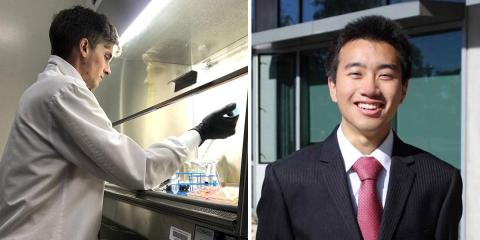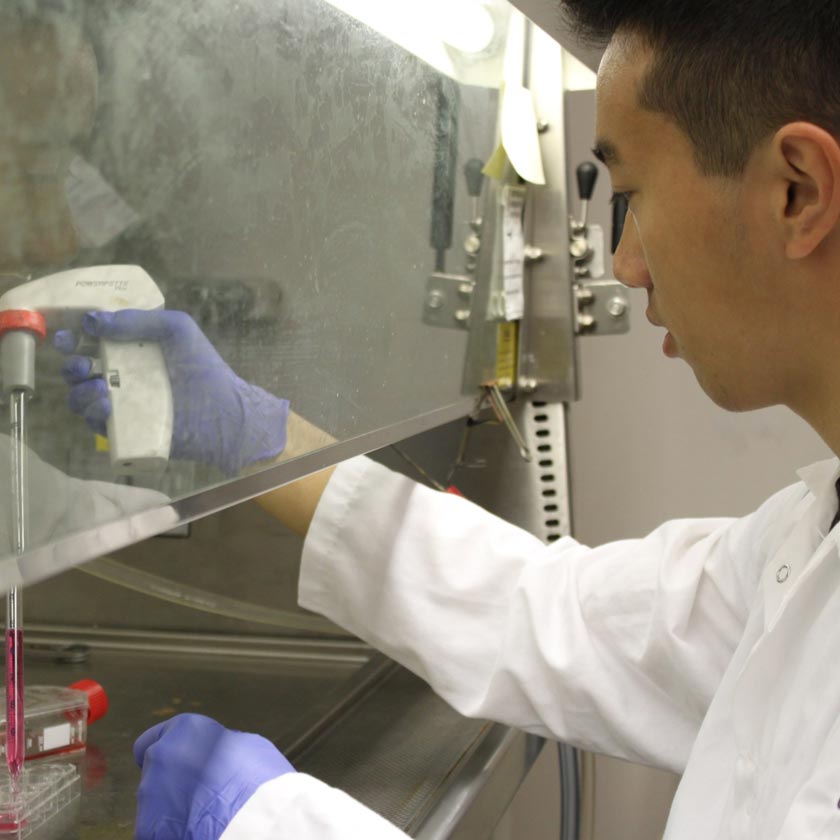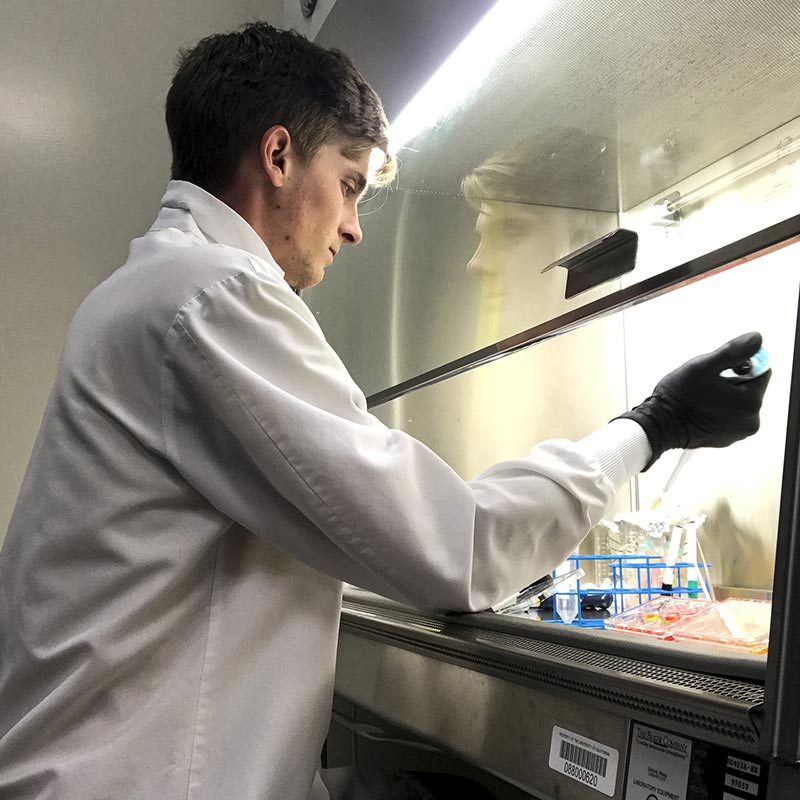
Graduate students investigate the inner workings of well-known infections to prevent the next pandemic.
By Jessica Kelton ‘21
In a time when our global community has ground to a halt due to the COVID-19 virus, graduate student researchers at UC Santa Barbara are ensuring that the next viral pandemic is prevented. Two graduate students, Justin Su and Duncan Proctor, are on the front lines of virus research, working to better understand the complexities of virus transmission, operation, and control.
Halting Hepatitis and Measles
 Justin Su working in the MA lab. Photo Courtesy of Justin Su.
Justin Su working in the MA lab. Photo Courtesy of Justin Su.
Justin hopes his research at the UCSB Ma Lab will help lead to the development of new drugs to combat the next deadly virus. Justin received a B.S. in Pharmacology from UC Santa Barbara and is continuing his education at our university as a M.A. candidate in Molecular, Cellular and Developmental Biology with an emphasis in Pharmacology and Biotechnology. He joined the Ma Lab at UC Santa Barbara in January of 2016, and is eager to pursue a career in biomedical research and is particularly interested in research on kidney diseases and the hepatitis viruses.
“I study viruses and their interactions with cellular host factors to one day lead the development of new therapeutics for a number of deadly, mutable viruses. “ - Justin Su
His backgrounds in pharmacology, cell biology, and virology have led to his current research on the molecular mechanisms involved in regulating the replication of the measles virus (MeV). His research has been published in the American Society for Microbiology Journals in the Journal of Virology. Justin’s paper explores how the measles virus forms inclusion bodies with the properties of liquid organelles, and provides the scientific community with a deeper understanding of measles-infected cells. In his paper, Justin says that studying viruses is important now more than ever as many viral diseases remain “incurable.”
Measles, as many know, is a highly contagious infectious disease caused by the MeV virus. It can be a very serious illness for children but is easily preventable by vaccine. With researchers like Justin focused on a better understanding of the biogenesis and regulation of measles-infected cells, this work can lead to quicker developments of treatments and vaccines for future similar viruses.
Zeroing in on a Zika Vaccine
 Duncan Proctor in action. Photo Courtesy of Duncan Proctor
Duncan Proctor in action. Photo Courtesy of Duncan Proctor
The 2015-2016 outbreak of the infamous Zika virus constituted a global public health emergency, hitting 60 countries and threatening the Olympics. While it has since faded from the spotlight, the dangerous virus is still in existence and no vaccine has been released. Graduate student Duncan Proctor, however, has not forgotten the threat Zika poses to public health.
Duncan, a third year Ph.D. student in Molecular, Cellular and Developmental Biology, completed his undergraduate degree in UCSB’s College of Creative Studies. He now conducts research in the Arias Lab with his co-mentor Dr. Dennis Clegg.
“Continuing our study of viruses is uniquely important during this pandemic caused by a virus that we do not know much about. We need to continue improving our fundamental understanding of viral infections, which will allow the community to be better prepared to combat the spread of the disease and save lives. The access to antiviral and vaccines, will be essential to prevent, control and mitigate this pandemic and other viral epidemics in the future. The only way we will get there is by promoting worldwide research to get ahead of the curve.”
-Duncan Proctor
Duncan’s research interests fall at the junction of virology and developmental biology with a specific focus on the Zika virus (ZIKV). He is interested in how ZIKV exposure during pregnancy causes severe neurological disorders, visual impairment, and abnormal eye developments in newborns. To study this, Duncan investigates the activation and inhibition of cellular stress responses by ZIKV and their impact on cell survival. His research is instrumental in furthering our understanding of the pathogenesis of the ZIKV eye infection, providing insight into how the virus causes these serious birth defects as well as hope that they can be prevented in the future.
The lab has paused their research on ZIKV and is now collaborating with other labs on campus to initiate projects on the coronavirus. One such project monitors asymptomatic rates in the community while another is using a closely related coronavirus strain to investigate pathology when patients become infected.
The current health crisis has reinforced the urgent need for more work in the study of viruses. Justin and Duncan will continue their research in the coming years and may just help save thousands of lives.